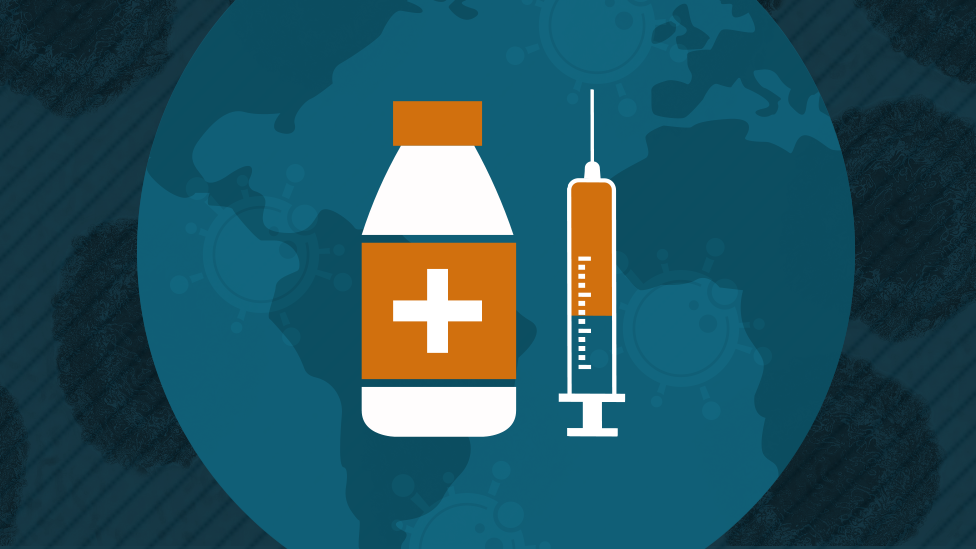Jennifer Aniston explains cutting off unvaccinated friends
- Published
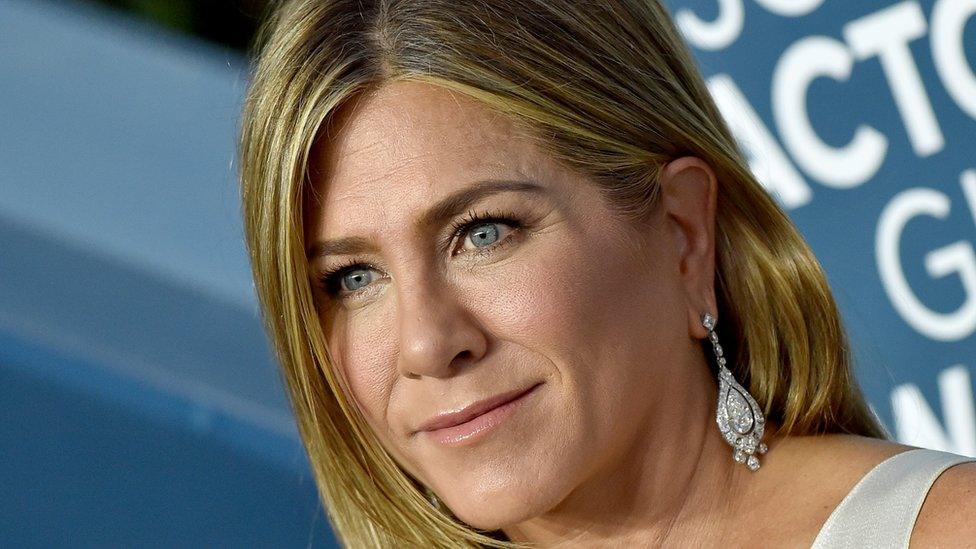
Jennifer Aniston recently took part in the Friends reunion
Jennifer Aniston has expanded on why she has cut off some of her friends who have refused to be vaccinated.
Earlier this week, the Friends actress said, external she had "lost a few people from [her] weekly routine" who had decided against having a Covid jab.
Some of her Instagram followers have since asked why she was so worried, given that she had been vaccinated.
"Because if you have the variant, you are still able to give it to me," she posted on Thursday.
"I may get slightly sick but I will not be admitted to a hospital and or die.
"But I can give it to someone else who does not have the vaccine and whose health is compromised (or has a previous existing condition) - and therefore I would put their lives at risk."
The actress made the comments on her Instagram story,, external which allows users to post pictures, videos and messages which only stay live for 24 hours.
In her interview with InStyle,, external published on Tuesday, Aniston said: "There's still a large group of people who are anti-vaxxers or just don't listen to the facts. It's a real shame.
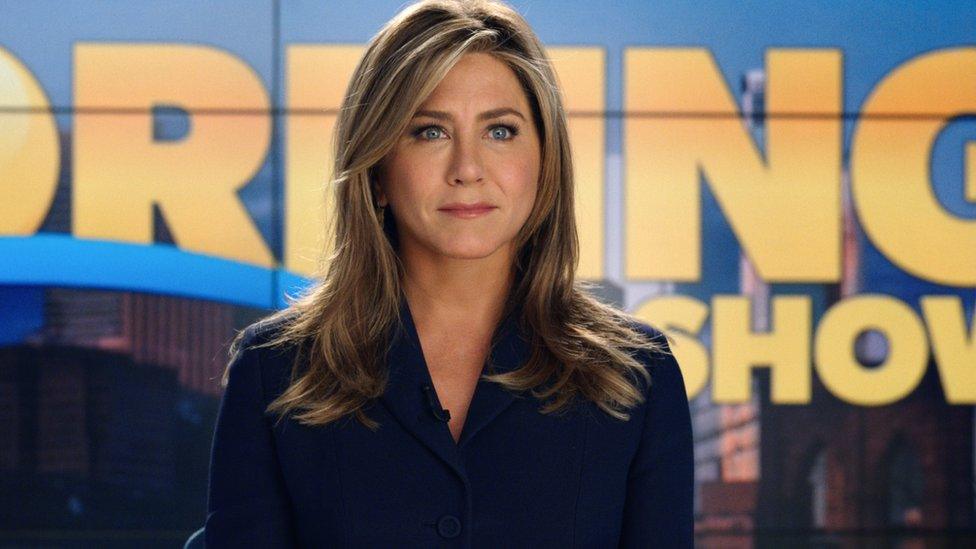
Aniston will star in the second series of The Morning Show, which launches in September
"I've just lost a few people in my weekly routine who have refused or did not disclose [whether or not they had been vaccinated], and it was unfortunate. I feel it's your moral and professional obligation to inform, since we're not all podded up and being tested every single day."
She added: "It's tricky because everyone is entitled to their own opinion - but a lot of opinions don't feel based in anything except fear or propaganda."
Aniston is one of the most famous actresses in the world, thanks in large part to her portrayal of Rachel on the US sitcom Friends.
Earlier this year, the cast of the show hit the headlines when they reunited on screen for the first time in 17 years.
Aniston broke an Instagram record (which has since been beaten) when she joined the social media platform in 2019, and now has 37 million followers.


Earlier this week, US news network CNN sacked three employees for returning to work unvaccinated. CNN boss Jeff Zucker said the company had "a zero tolerance policy on this".
In the UK on Thursday, the new NHS chief executive Amanda Pritchard urged unvaccinated young adults to get jabbed, saying it is "so important".
More than 46 million people in the UK have received at least one dose of a coronavirus vaccine - part of the biggest inoculation programme the country has ever launched.
These high vaccination levels have created a "protective wall", the government has said, sufficient to end legal restrictions on social contact.
Professor Jonathan Van-Tam answers a range of questions about Covid from young audience members
First vaccines are now being offered to everyone aged 16 and above as well as children over the age of 12 who are at higher risk from Covid.
The NHS website states that vaccines are "the best way to protect yourself and others" against Covid, noting how they reduce the risk of people getting seriously ill or dying from the virus, while also lessening the chances of them catching or spreading it.
However, they also note that vaccinated people can still catch and spread coronavirus.
While mild side effects are common, they say, more serious ones such as allergic reactions or blood clotting are rare.
Aniston may have publicly championed vaccines, but other entertainment stars including Stone Roses singer Ian Brown, Van Morrison and Eric Clapton have expressed concerns.
Clapton described his experience, external of taking the vaccine as "disastrous", and blamed "propaganda" for overstating its safety.
He, Brown and Richard Ashcroft have all pulled out of a festival appearances over their refusal to play events that require vaccination proof as a condition of entry.
From the end of September, the government hopes to introduce a law requiring two jabs to go to nightclubs and some other venues in England.

Follow us on Facebook, external, or on Twitter @BBCNewsEnts, external. If you have a story suggestion, email entertainment.news@bbc.co.uk, external.
Related topics
- Published4 March 2022
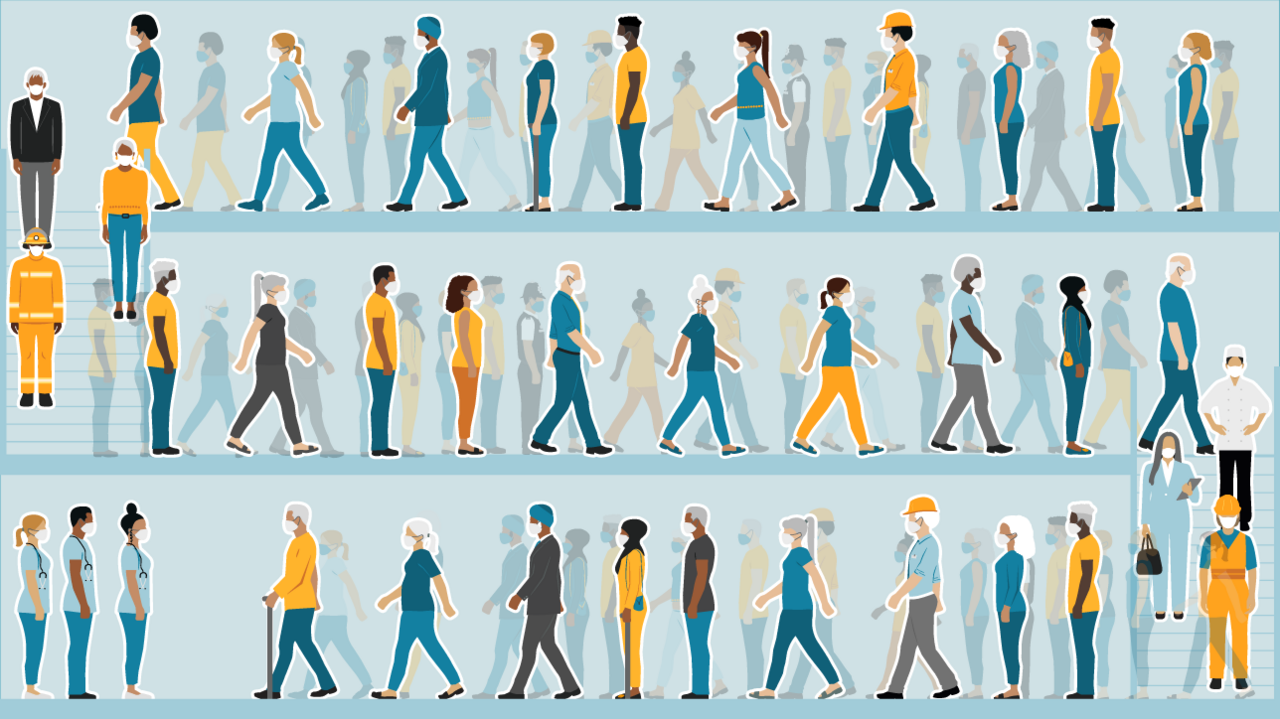
- Published5 August 2021
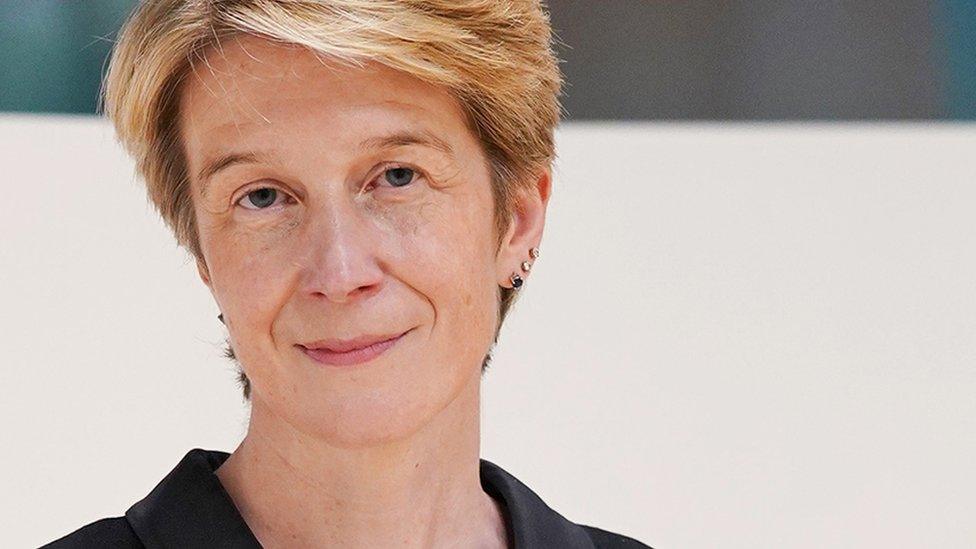
- Published3 November 2019
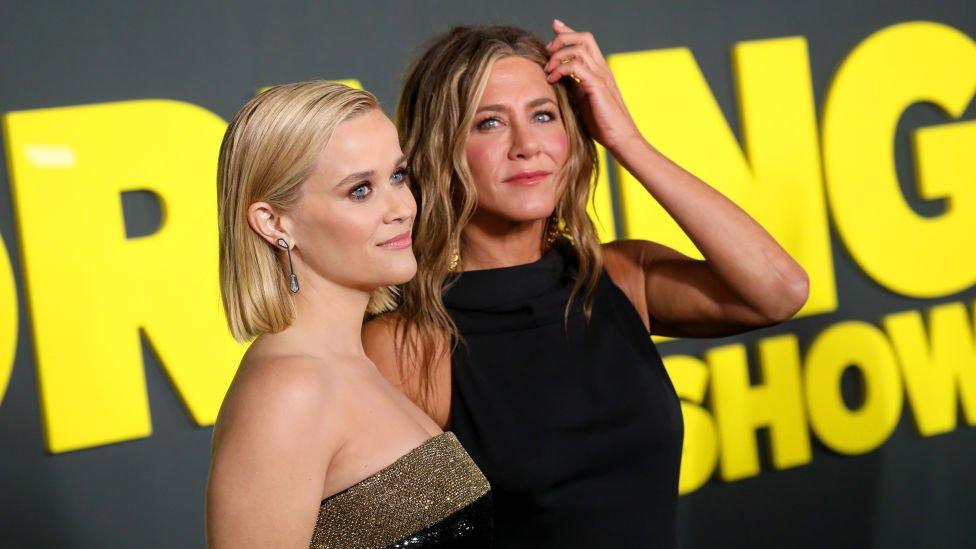
- Published20 December 2023
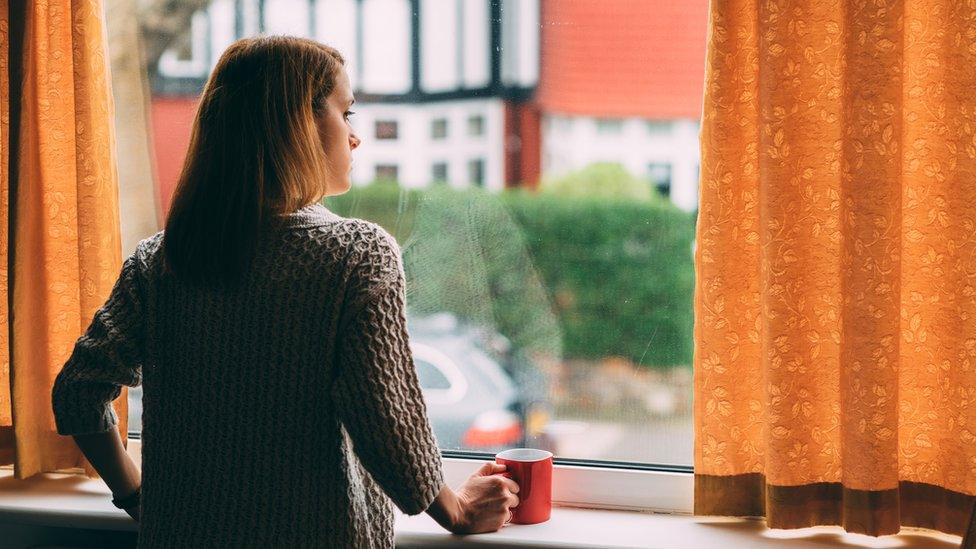
- Published16 October 2019
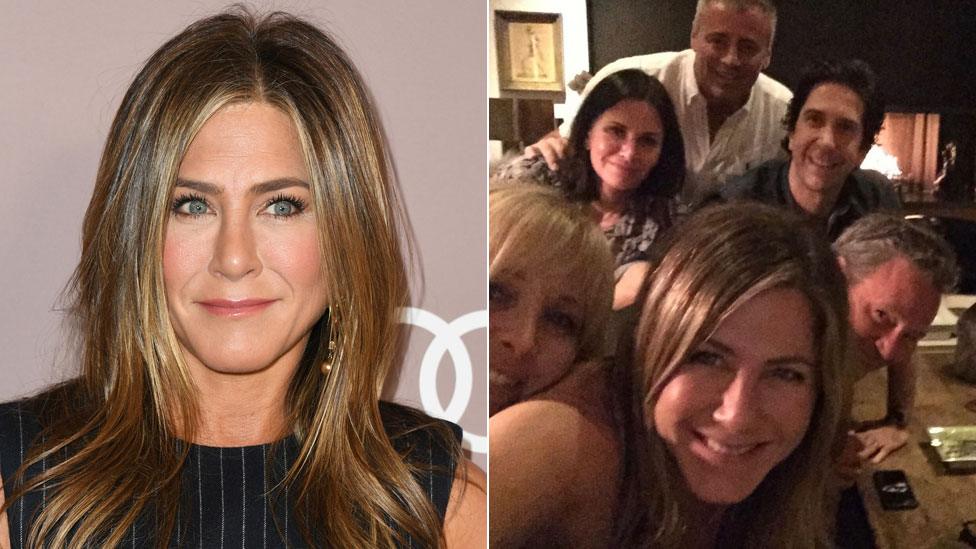
- Published1 June 2022
